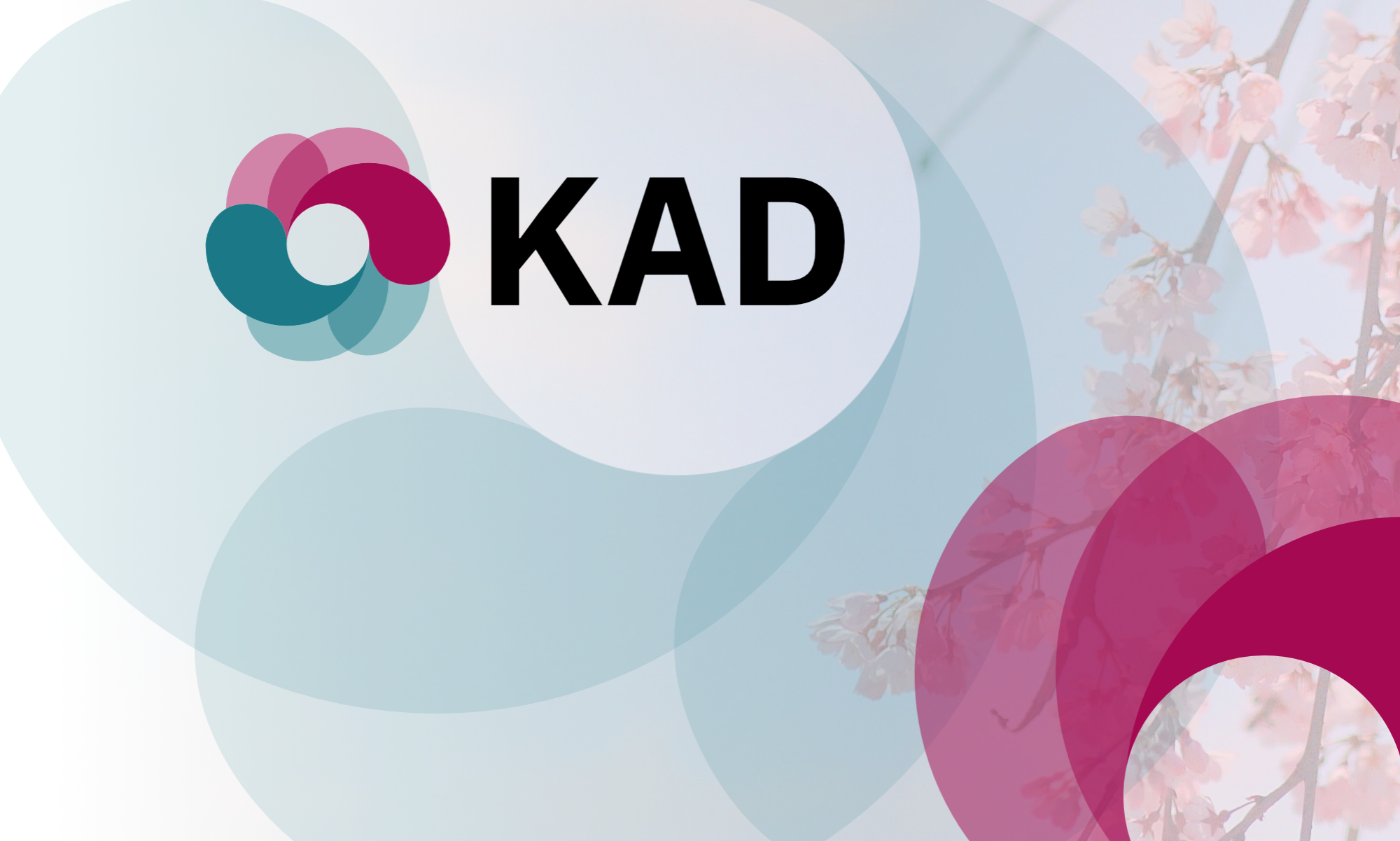As some of you might be interested, here is my current report about how to enter Korea under COVID-19 immigration restrictions.
Initial situation:
My (Korean) girlfriend, that lived in Germany with me, signed a new job contract starting July 1st in Seoul. As I am working during Corona only from remote and have an F4 Visum issued, I decided to join her for a while.
Anyhow, under the written rules it was unclear whether I am allowed to enter Korea into self-quarantine or not with an F4 but without registered residence. If not, I would have to go into center quarantine for 14 days, which is 100,000 KRW/day. My GF requested an official statement for our situation, and the government’s reply was, if we are staying in a suitable home (hotels/hostels are not) and have the written approval of the landlord, I am allowed to stay in self-quarantine even without registered residence in Korea. In case you need the government’s reply, refer to their reply in my case:
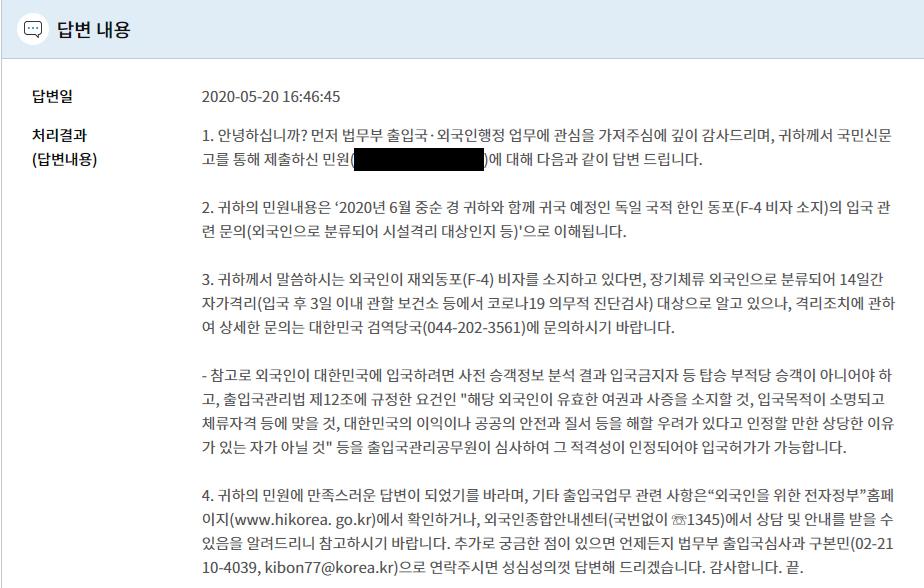
Preparations from outside of Korea
A Korean phone number at arrival is required, as the availability by phone will be checked before immigration, so no chance to buy a sim-card at arrival as usual. I have used a German reseller of KT sim cards, unfortunately, the number was changed. I had already prepared all documents with the assigned telephone number but on arrival, I received an e-mail that I got a new number.
On Airbnb, there are currently a couple of apartments already advertised with quarantine in the title. And due to the lack of tourist huge discounts are also offered, so we have just chosen one of the numerous providers and received the written statement.
Please check if your overseas health insurance is valid for travel during a pandemic. With an F4 you can enroll in the Korean National Health Insurance but only after registration of residence. Which is not possible during the quarantine. So you might be without insurance for 2-3 weeks. Nevertheless, possible COVID-19 treatments are fully covered by the Korean government, also all tests.
Pre-departure
I have printed and filled all documents that are currently listed on the consulate’s/embassy’s page. Please check with your local diplomatic mission which documents are required: in my case, it was the travel record declaration, the agreement to pay center quarantine, and the health form. Additionally, I printed the landlord’s confirmation and the reply from the government regarding self-quarantine for non-registered F4 holders and installed the app.
I couldn’t do the online check-in: I only got an “exchange for boarding pass voucher” from Asiana (I assume the check-in agent has to check for non-Koreans the eligibility for entering before issuing the boarding pass, as my GF with Korean citizenship could easily check-in online). During check-in, the (external) agent had to call the Asiana supervisor three times: as the external check-in agents deal with a couple of airlines and destinations, they are not aware of all current country-specific visa rules.
Flight
The flight was pretty empty, approximately 80 passengers in an A350. Flight attendants wore surgical facemasks only during boarding and changed on the flight to KN94. All services were provided as usual.
During flight more forms were handed out: health form and travel history form.
Arrival
In the present circumstances there are a couple of gates to pass:
- 1st gate – health check: they check if your health form is filled and your temperature is checked. If you have to go to the center quarantine, you will be grouped, if you are allowed to go to self-quarantine, you take the regular way to immigration.
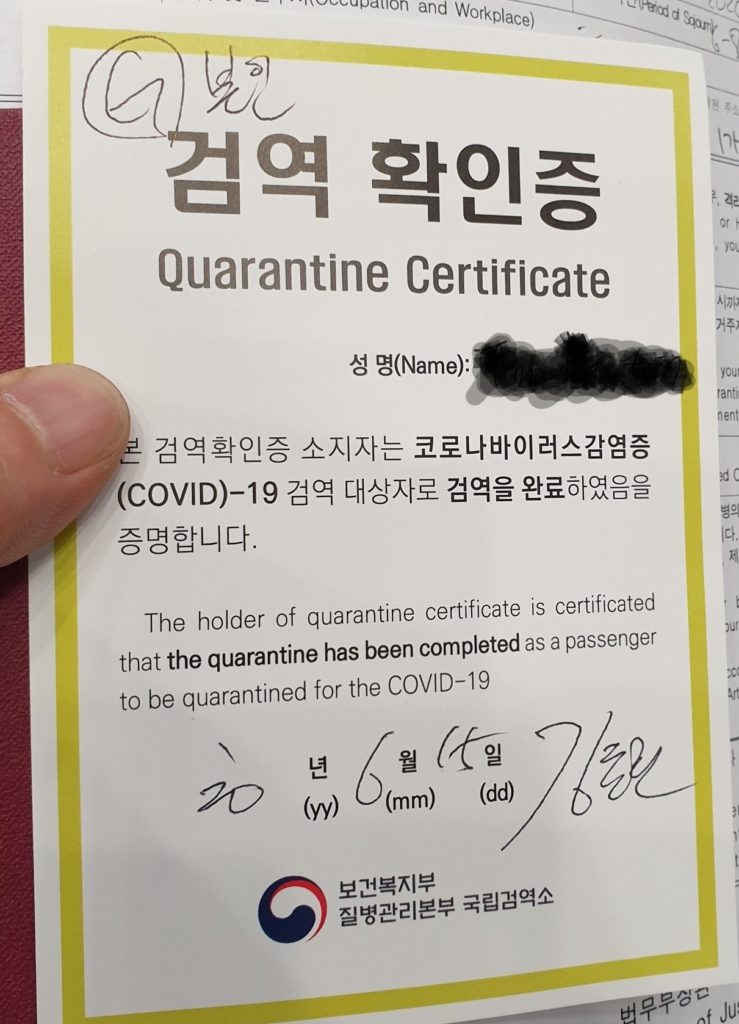
- 2nd gate – tracking app: there is at present a new version of the app. The officer is installing the app on your phone (you need to have WiFi or mobile data), confirming your address and assigning you to the local health authority.
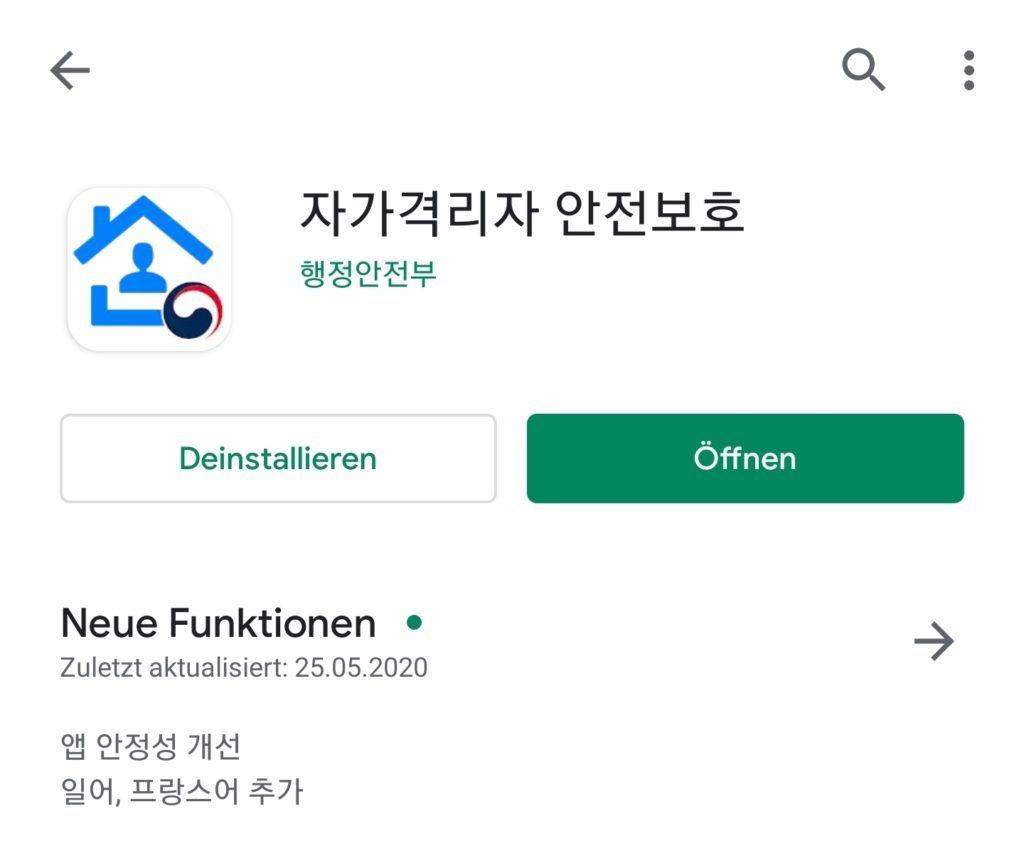
- 3rd gate – officer test calls on your phone and gives you a pile of additional documents to fill out.
- 4th gate another office is checking if all documents are filled out correctly.
Eventually, you are allowed to go to the immigration officer.
Baggage claim and customs as usual. Total time required to do health check and immigration: 45min.
Transfer
Arrival hall is super empty and there is a fence guiding you to the very end of the arrival hall (section F). A couple of health officers, police officers and some military around, to make sure you are not leaving the fenced area. A couple of desks with destinations (bigger cities and provinces), you put your name in the list of destinations – for us it was the only Bus to Seoul. So instead of many different bus lines to Seoul as usual, during COVID-19 only one line to Seoul. We had to wait for another 40min and then were called. The bus had only 8 passengers and stopped at the health authorities in Mapo and Itaewon before we left at Jung-gu. The bus is more expensive than during non-pandemic times: 16,000 KRW for the ride.
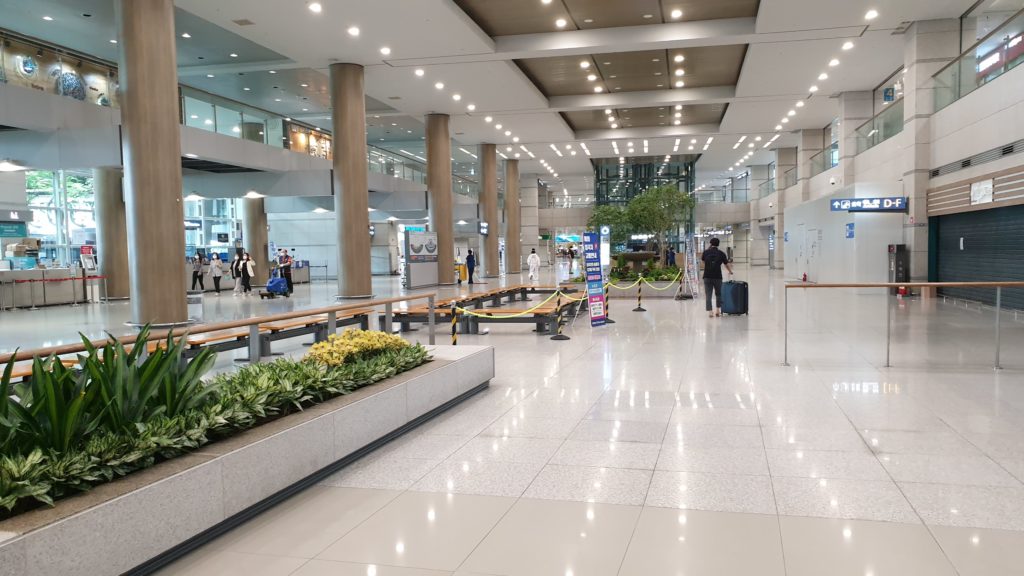
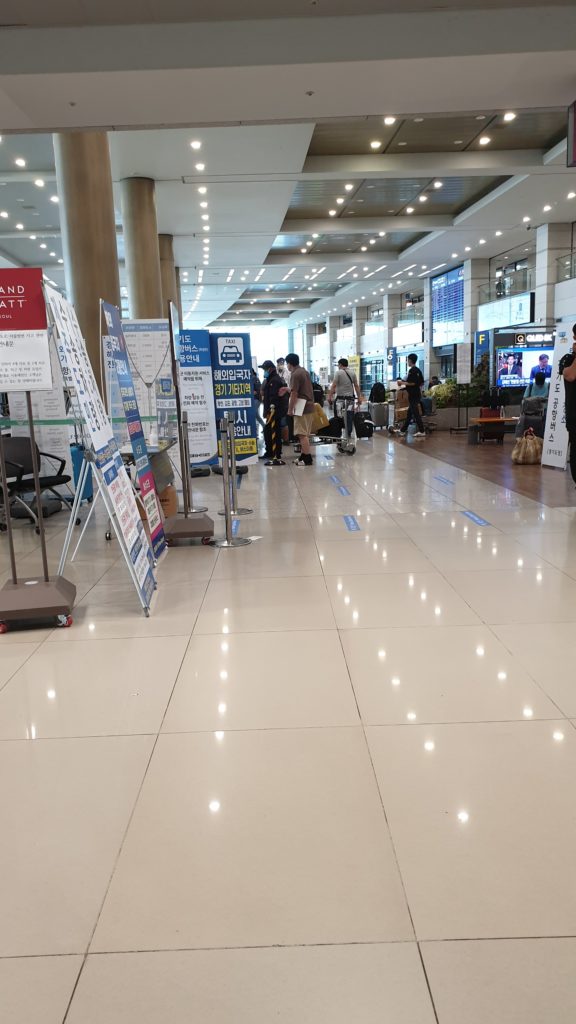
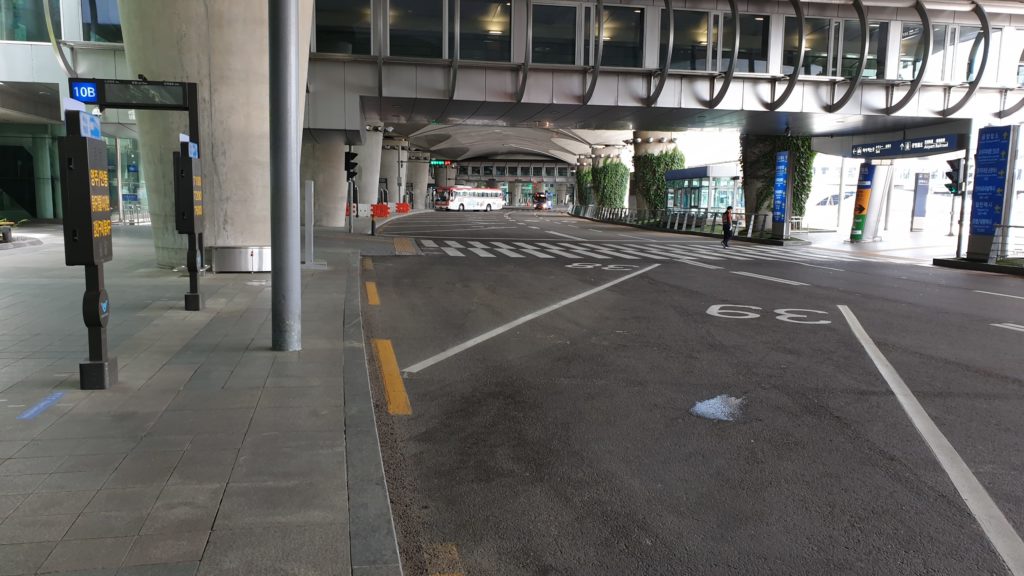
Testing
At Jung-gu health officers picked us up from the bus stop and another pile of documents had to be filled out. Then we were tested in one of the booths. Afterwards, another officer drove us to our apartment. The next morning we received our results (both negative) via text message.
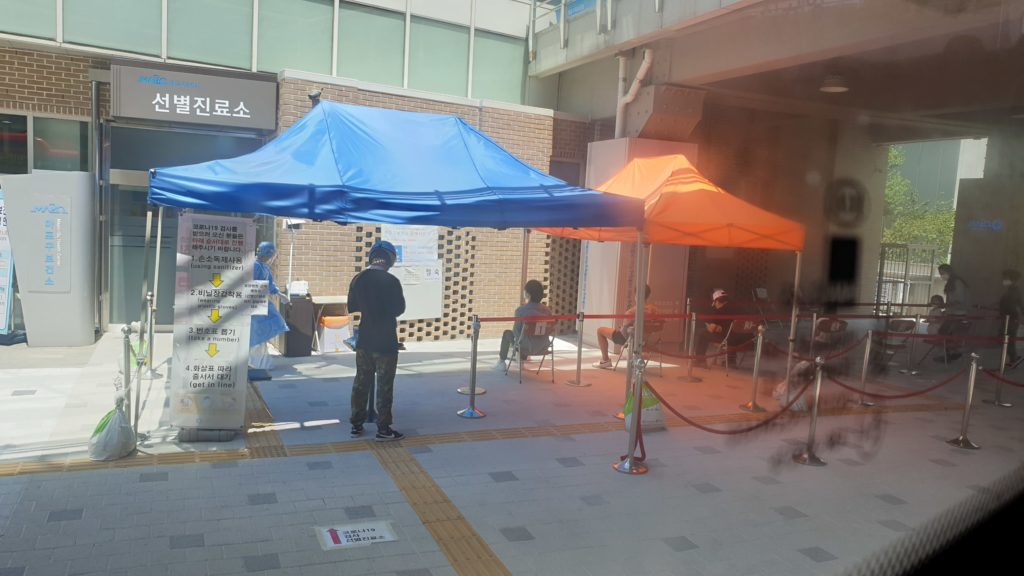
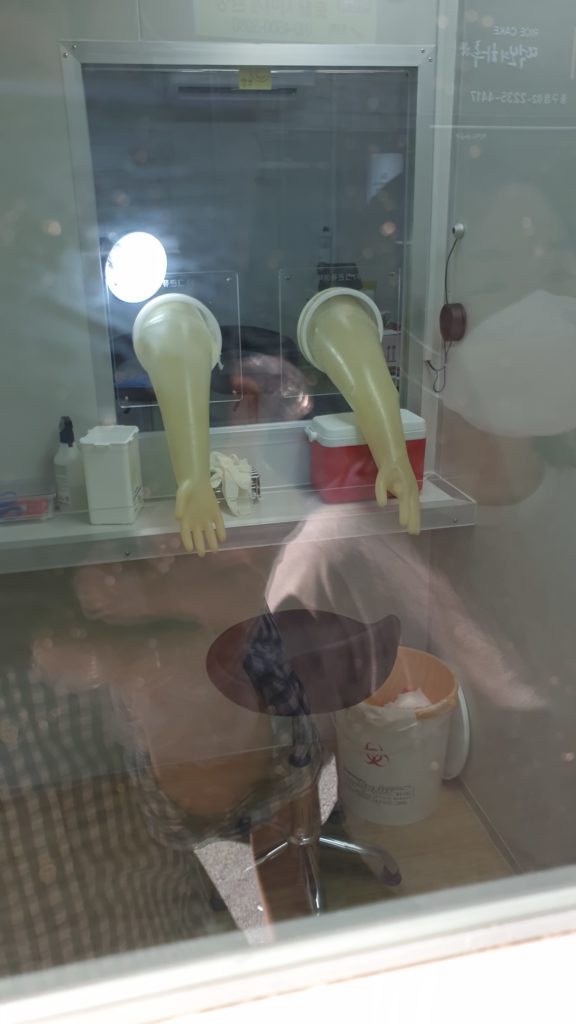
Quarantine
I saw in previous reports that the government provides you supplies and accessories as a fever thermometer. For cost-saving measures this doesn’t happen anymore: we got 2 days after arrival a very basic kit: biohazard trash bags, where we have to collect all of our trash for 2 weeks, disinfection for the trash bags, hand-sanitizer, face-masks, temperature display stickers instead of a fever thermometer and more forms to fill.
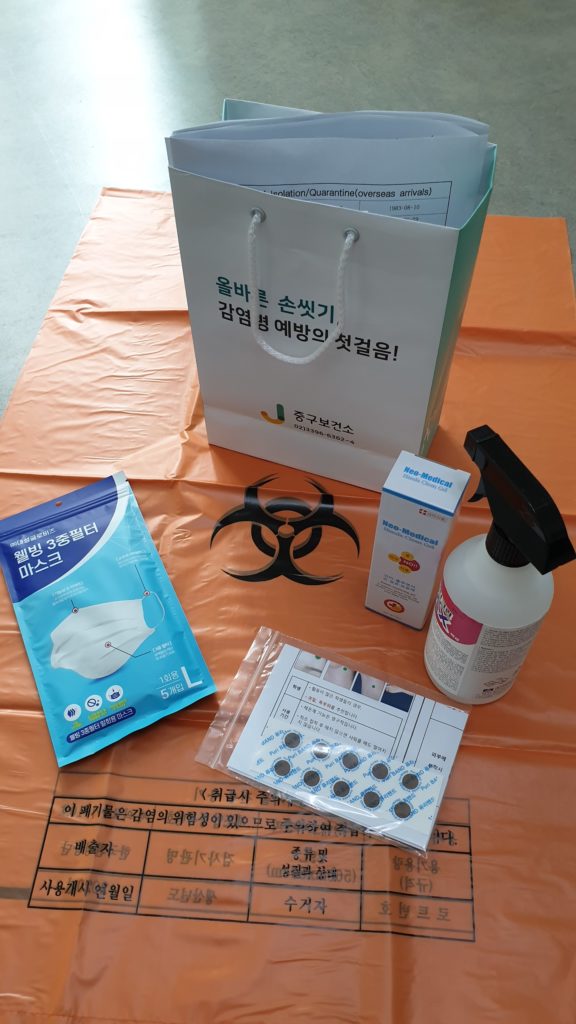
We were in the lucky situation that our landlord provided already packs of Ramen and bottled water. And the great Korean delivery system helps to survive. Our first groceries arrived less than 12h after order.
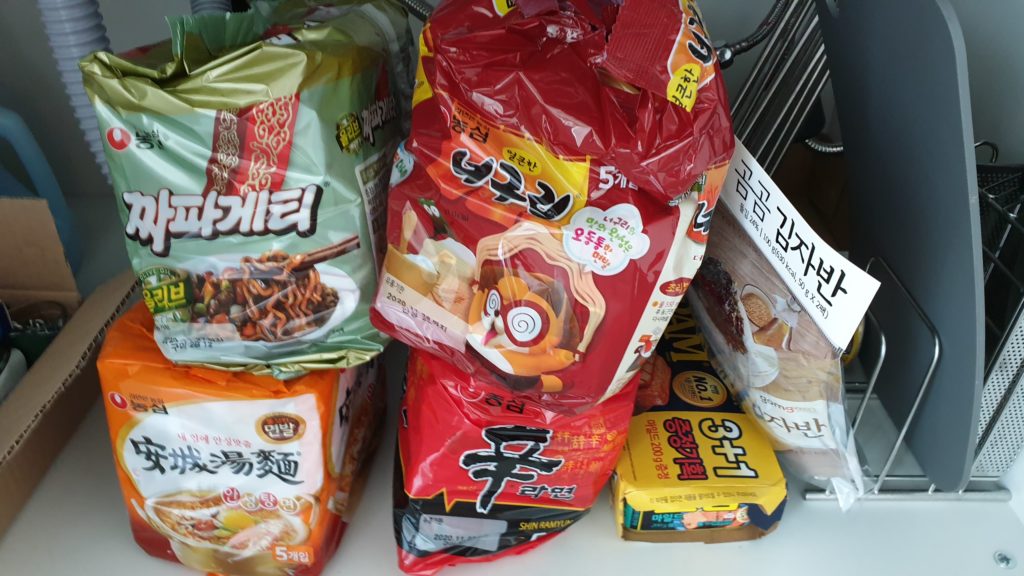
In summary, it is manageable to enter Korea. Nevertheless, unless you have a native Korea speaker at your side, it might be from time to time very difficult. As most of the elder Koreans don’t speak English very well. So I was happy my GF dealt with all of the discussions and especially the daily calls from the health authorities.
